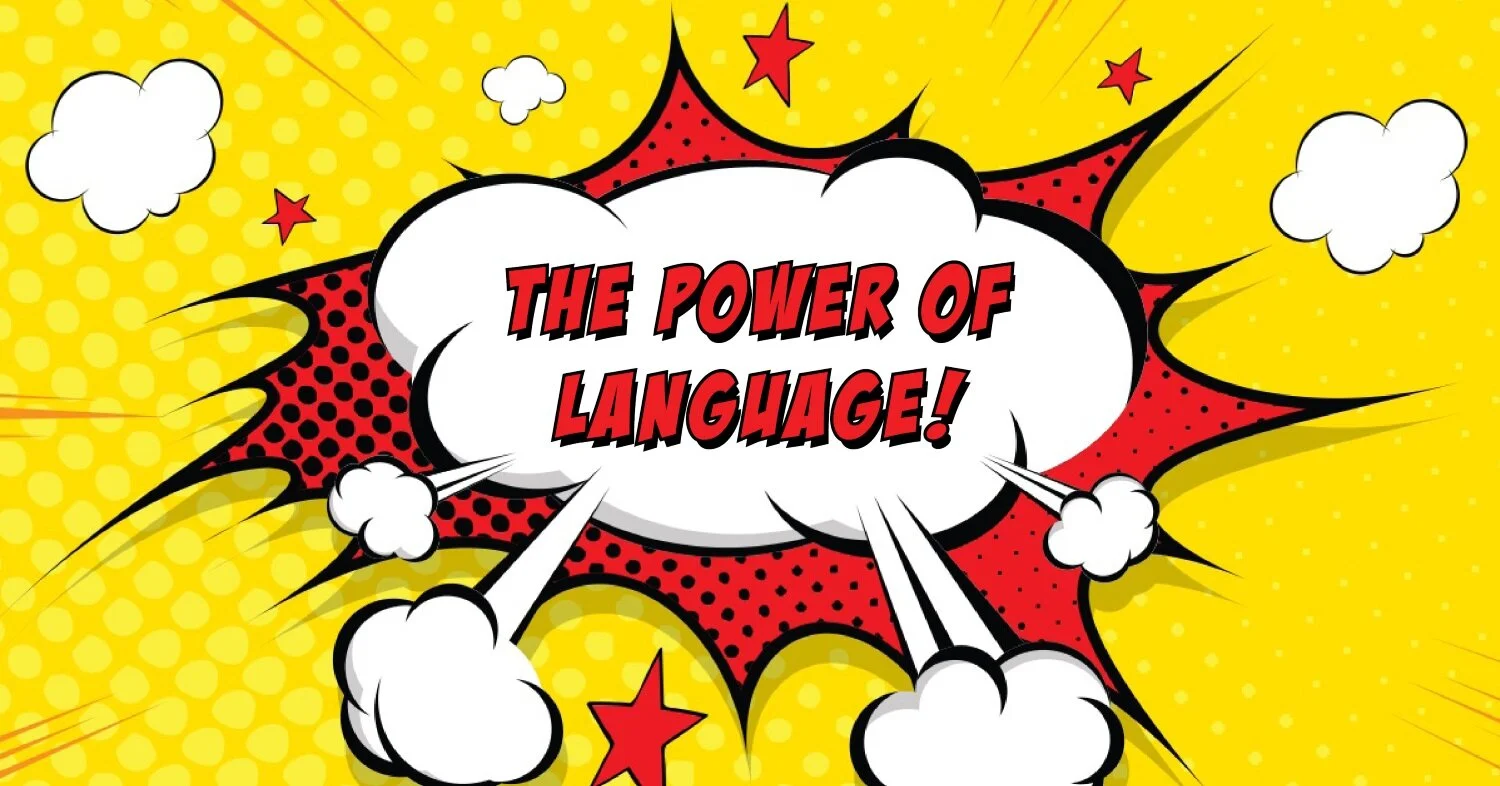The power of language
Never underestimate the power of your words. If you want to create any change in your life or your business, the key might just be in the language you use. You can change your outcomes simply by changing your words.
I want you to do a little experiment. There are three phrases that I invite you to change or avoid – and see how they affect things for you.
These three things could quite possibly be the key to happiness, the way to create a more satisfying and successful life. As an added bonus, they may even help you lose some weight and make more money … just by changing the way you speak!
I should …
The first thing I want you to stop saying is “I should”.
Make a mental note of how many times you say this throughout your day – you’ll be surprised at how often it creeps up. And then take notice of whether or not it is associated with a positive feeling or action.
“I should go to the gym after work.” “I should have a chat with my co-worker about that project.” “I should call that client.”
Often when we use the word “should”, we follow it with a “but” – either verbally or just in our heads.
“I should go to the gym after work – but I’m too tired.” “I should have a chat with my co-worker about that project – but I don’t want her to think I’m criticising her work.” “I should call that client – but I don’t want to deal with the conflict right now.”
Sometimes when we use the word should, we’re doing it with a tone of judgement. If we’re not being hard on ourselves, we’re telling other people what they should be doing, saying, wearing, etc. We may have good intentions, but our advice when we use the word “should” often isn’t well received because of the way it’s presented.
Language is associated with feelings. The feelings that come up every time you use the word “should” are usually ones of guilt and obligation. For many people, saying you should do something also takes away your power and makes you feel like you’re doing something against your will or under duress.
Your challenge: Instead of saying “should”, just decide whether or not you’re going to do the thing you think you should be doing. And then do it, delegate it, or ditch it (more on that in a previous blog post of ours here).
Replace “I should go to the gym” with “I’m going to the gym tomorrow after work” and see how decisive and powerful that feels. Replace “I should call that client” with “I’m going to email the client first to forewarn her about the issue we’re having, and then she’ll be ready for my call later in the week.” Again, decisiveness leads to feelings of empowerment and control.
You see what’s happening here? Instead of saying “should”, you’re deciding on a course of action. How powerful.
I can’t …
The second change I want you to experiment with is to stop saying “I can’t”.
“I can’t buy that until I get paid.” “I can’t make that event next Friday.” “I can’t eat that.” “I can’t run 10k.”
“I can’t” is an incredibly negative statement. Even if the facts behind the statement are true, rephrasing things can do wonders for your mindset.
Your challenge: Replace it with “I don’t” – or something similar, as shown in the following examples.
“I don’t shop during the last week of the month before payday when money is tight. But I’m going to put that thing on layby and as soon as my pay goes in I’m going to treat myself.”
“I don’t eat that sort of thing.” or “I choose not to eat that.”
“I don’t have space in my diary for that event next Friday, but I’m going to try to make the next one.” Or “I’m choosing not to go to that event because of another commitment I have, but I’ll try to make the next one.”
“I’m not up to 10k yet, but I’m working on it.” or “I don’t run. Power walking is more my thing.”
Like the word “should”, “can’t” conjures up feelings of oppression or lack of choice. It takes away your power and often brings up feelings of deprivation – especially true when we’re talking about doing fun things or eating certain foods.
As soon as you look for a replacement to the phrase “I can’t” you start to find more positive ways of viewing situations. You also start to look at your actions as decisions you make, not simply choices between alternatives. There is often remorse or doubt when we have to choose between two options, because we worry that we’ve chosen the wrong one and we start to doubt our thinking. When we view these things instead as conscious, proactive decisions, we feel much more empowered and happy with the course we’ve chosen.
I have to …
The last thing I want you to stop saying is “I have to …”
We say this all the time in our daily life … I have to go see a client today. I have to go to the dentist. I have to write a report for my boss. I have to take my son to soccer. I have to make dinner. I have to work tonight.
Life is full of things we “have to” do. As a result, we feel tired, pulled from all directions, and like we’re constantly reacting to demands from others.
Your challenge: Instead of saying “I have to”, say “I get to”.
I get to….
… take my kids to school ... because I have the freedom to go to work when I want to.
… go to my child’s school assembly, swim sports, etc ... because I have the option of leaving work in the middle of the day.
… exercise ... because I’m fit and healthy and all of my limbs are working (complain about that to the person who has injured their back or the person who is in a wheelchair and see what kind of response you get).
… go to work today ... because I’m fortunate enough to be employed (just say that to the person who has been looking for work for the last six months).
… spend time with my elderly parent or grandparent ... because they’re still alive and family is important (you wouldn’t dare complain about that to someone who would give anything to have one more day with their deceased parent).
… change my eating ... because I have the choice and the means to eat healthy foods and they’re available to me.
… do the laundry today ... because we have electricity and running water.
… do a uni assignment today ... because I’m lucky enough to attend university and have the means to study.
… sit on a busy train to get to work ... because my city has public transit that I can use.
… wear glasses ... because I still have my eyesight.
The list could go on.
I know, some of these things are a bit of a stretch and are a bit overly optimistic or even downright silly. But apparently there are people out there who enjoy doing laundry.
The point is, once you start seeing some of the things that you “have to” do as things that you “get to” do (decisions that you willingly make), you start to appreciate things in a different way.
So I challenge you to just change your language around these things, as silly as it may sound or feel to do so. Take note of whether or not you start to feel the levels of resentment lifting.
I don’t want to sound all high and mighty about having a roof over our heads and body parts that work properly. I just want you to stop and appreciate the things we take for granted and see what that does to your mood and your mindset.
As the cliché goes, you don’t appreciate things until they’re gone. So my hope is that you’ll stop and appreciate things you do have – including the freedom to make decisions.
There are different ways to look at everything. You can see the bright side or the dark side. You can focus on the positive or the negative. It’s all about perspective. And language has an enormous impact on our perspective.
Language can change your thoughts and your attitude.
Your thoughts can change your actions.
Your actions change your outcomes.
So please, don’t ever underestimate the power of language.
Please let me know how you find these challenges and any changes you make as a result. I’m always keen to hear your comments!




